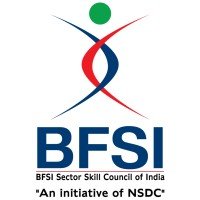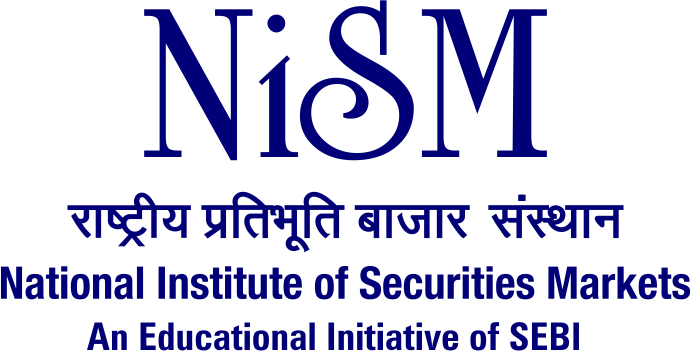Trainings under CSR
Ambition Learning Solutions has been conducting trainings under CSR on behalf of various Foundations.
Currently we are offering NISM-SERIES-V-A: MUTUAL FUND DISTRIBUTORS CERTIFICATION & EXAMINATION
The examination seeks to create a common minimum knowledge benchmark for all persons involved in selling and distributing mutual funds including:
- Individual Mutual Fund Distributors
- Employees of Asset Management Companies especially persons engaged in the sales and distribution of Mutual Funds
- The certification aims to enhance the quality of sales, distribution, and related support services in the mutual fund industry.
Highlights
- No Fees to be paid for Training
- No Fees to be paid for NISM VA examination
- Free ARN (AMFI Registration Number) generation
Objectives
On successful completion of the Mutual Fund Distributors examination, the candidate should:
- Know the basics of mutual funds, their role and structure, different kinds of mutual fund schemes, and their features
- Understand how mutual funds are distributed in the marketplace, how schemes are to be evaluated, and how suitable products and services can be recommended to investors and prospective investors in the market.
- Get oriented to the legalities, accounting, valuation, and taxation aspects underlying mutual funds and their distribution.
- Get acquainted with financial planning as an approach to investing in mutual funds, as an aid for mutual fund distributors to develop long-term relationships with their clients.
Eligibility
- Candidate must be a graduate from any stream.
- If the candidate is an Insurance agent then Graduation is not mandatory.
- Candidate should be a minimum of 22 years old.
Process
- Candidate required to pay an amount of Rs. 1,500/- as a refundable deposit which will be refunded within 1 month of either failing the NISM VA exam or ARN generation.
- Once we receive the documents and the security deposit from the candidate, we will be conducting sessions through online webinar-based training over 2-3 weeks. This training will be Free-of-Cost.
- NISM VA Exam & ARN Generation – We will be booking an exam with NISM after Candidates have finished training and mock tests. Once you clear the NISM VA exam, we will be applying for their ARN (AMFI Registration Number). For the NISM VA exam and for ARN, Candidates will not be charged any fees.
- In case of Candidate does not clear the exam, you can either retake the NISM VA exam by paying an amount of Rs. 1,500 (actual NISM VA Exam fees) or we will refund the Security Deposit.
- Whether Candidate clears the NISM VA exam or you do not clear the NISM VA exam, we will be refunding the Security Deposit of Rs. 1,500.
Examination Structure
The Mutual Fund Distributors examination consists of 100 questions of 1 mark each and should be completed in 2 hours. The passing score for the examination is 50%. There shall be no negative marking.
Curriculum
CHAPTER 1: INVESTMENT LANDSCAPE
1.1 Investors and their Financial Goals
1.2 Savings or Investments?
1.3 Different Asset Classes
1.4 Investment Risks
1.5 Risk Measures and Management Strategies
1.6 Behavioural Biases in Investment Decision Making
1.7 Risk Profiling
1.8 Understanding Asset Allocation
1.9 Do-it-yourself versus Taking Professional Help
CHAPTER 2: CONCEPT AND ROLE OF A MUTUAL FUND
2.1 Concept of a Mutual fund
2.2 Classification of Mutual Funds
2.3 Growth of the mutual fund industry in India
CHAPTER 3: LEGAL STRUCTURE OF MUTUAL FUNDS IN INDIA
3.1 Structure of Mutual Funds in India
3.2 Key Constituents of a Mutual Fund
3.3 Organization Structure of Asset Management Company
3.4 Role and Support function of Service Providers
3.5 Role and Function of AMFI
CHAPTER 4: LEGAL AND REGULATORY FRAMEWORK
4.1 Role of Regulators in India
4.2 Role of Securities and Exchange Board of India
4.3 Due Diligence Process by AMCs for Distributors of Mutual Funds
4.4 Investor Grievance Redress Mechanism
4.5 AMFI Code of Conduct for Intermediaries
CHAPTER 5: SCHEME RELATED INFORMATION
5.2 Non-Mandatory Disclosures
CHAPTER 6: FUND DISTRIBUTION AND CHANNEL MANAGEMENT PRACTICES
6.1 The role and importance of mutual fund distributor
6.2 Different kinds of mutual fund distributors
6.3 Modes of distribution
6.4 Pre-requisites to become Distributor of a Mutual Fund
6.5 Revenue for a mutual fund distributor
6.6 Commission Disclosure mandated by SEBI
6.7 Due Diligence Process by AMCs for Distributors of Mutual Funds
6.8 Difference between distributors and Investment Advisors
6.9 Nomination facilities to Agents/Distributors and Payment of Commission to Nominee
6.10 Change of distributor
CHAPTER 7: NET ASSET VALUE, TOTAL EXPENSE RATIO ANDPRICING OF UNITS
7.1 Fair Valuation Principles
7.2 Computation of Net Assets of Mutual Fund Scheme and NAV
7.3 Dividends & Distributable Reserves
7.4 Concept of Entry and Exit Load and its impact on NAV
7.5 Key Accounting and Reporting Requirements
7.6 NAV, Total expense ratio and pricing of units forthe Segregated Portfolio
CHAPTER :8 TAXATION
8.1 Applicability of taxes in respect of mutual funds
8.2 Capital Gains
8.3 Dividend income
8.4 : Stamp Duty on Mutual Fund Units
8.6 Securities Transaction Tax
8.7 Tax benefit under Section 80C of the Income Tax Act
8.8 Tax Deducted at Source
8.9 Applicability of GST
CHAPTER 9: INVESTOR SERVICES
9.1 The NFO process
9.2 New Fund Offer Price/On-going Offer Price forsubscription
9.3 Investment Plans and Services
9.4 Allotment of Units to the Investor
9.5 Account statements for investments
9.6 Mutual Fund Investors
9.7 Filling the Application Form for Mutual Funds
9.8 Financial Transactions with Mutual Funds
9.9 Cut-off Time and Time Stamping
9.10 KYC Requirements for Mutual Fund Investors
9.11 Systematic Transactions
9.12 Operational aspects of Systematic Transactions
9.13 Non-Financial Transactions in Mutual Funds
9.14 Change in Status of Special Investor Categories
9.15 Investor transactions – turnaround times
CHAPTER 10: RISK, RETURN AND PERFORMANCE OF FUNDS
10.1 General and Specific Risk Factors
10.2 Factors that affect mutual fund performance
10.3 Drivers of Returns and Risk in a Scheme
10.4 Measures of Returns
10.5 SEBI Norms regarding Representation of Returns by Mutual Funds in India
10.6 Risks in fund investing with a focus on investors
10.7 Measures of Risk
10.8 Certain Provisions with respect to Credit risk
CHAPTER 11: MUTUAL FUND SCHEME PERFORMANCE
11.1 Benchmarks and Performance
11.2 Price Return Index or Total Return Index
11.3 Basis of Choosing an appropriate performance benchmark
11.4 Benchmarks for equity schemes
11.5 Benchmarks for Debt Schemes
11.6 Benchmarks for Other Schemes
11.7 Quantitative Measures of Fund Manager Performance
11.8 Tracking Error
11.9 Scheme Performance Disclosure
CHAPTER 12: MUTUAL FUND SCHEME SELECTION
12.1 Scheme Selection based on Investor needs, preferences and risk-profile
12.2 Risk levels in mutual fund schemes
12.3 Scheme Selection based on investment strategy of mutual funds
12.4 Selection of Mutual Fund scheme offered by different AMCs or within the scheme category
12.5 Selecting options in mutual fund schemes
12.6 Do’s and Don’ts while selecting mutual fund schemes
In Association With

